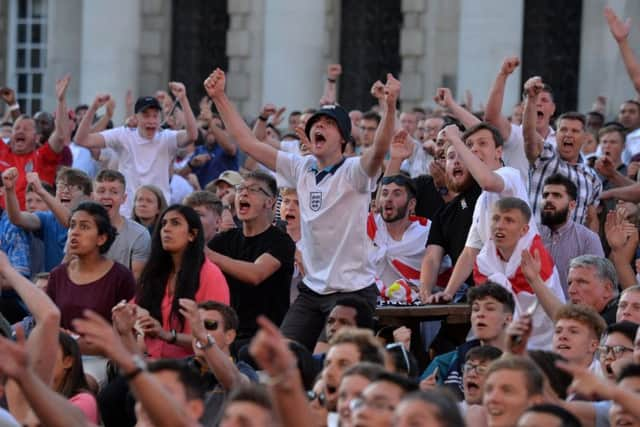World Cup 2018: did England and Columbia fans see the same match?
and live on Freeview channel 276
Now scientists have scanned the brains of die-hard football fans to find out why rivals can have vastly different perceptions of the same match.
Manchester Utd and Chelsea supporters took part in a University of York study which mapped brain activity as they watched their beloved sides in action against each other.
Advertisement
Hide AdAdvertisement
Hide AdIn an MRI scanner, the fans were shown a Match-of-the-Day-style montage of highlights from games between the two teams.


Professor Tim Andrews from the Department of Psychology at York, said: “When we compared the brain activity of supporters of the same team and supporters of opposing teams, we found that activity in the sensory regions of the brain were aligned in all participants – or in other words, they all saw and heard the same game.
“But, in the frontal and subcortical regions of the brain – including areas known to be active in reward, self-identity and control of movement - there was a correlation between supporters of the same team, but significant differences between the groups.
"This is what allows fans of rival teams to develop a different understanding of the same game.”
Advertisement
Hide AdAdvertisement
Hide AdThe study found wide variations between the rival groups in the nucleus accumbens, an area central to the brain’s reward system.
A "group-bias" effect linked to a sense of reward could explain why fans congregate to follow their team.
Professor Andrews added: “The results of our study offer new insight into the neural basis for group bias and the human tendency to feel comfort and reassurance when part of a group, alongside distrust of outsiders and rivals.”
“The regions of the brain that showed the biggest differences between the groups of supporters – the subcortical regions positioned in the middle of the brain - are believed to have been conserved during evolution – this supports the idea that group mentality may reflect one of the more primitive human instincts."